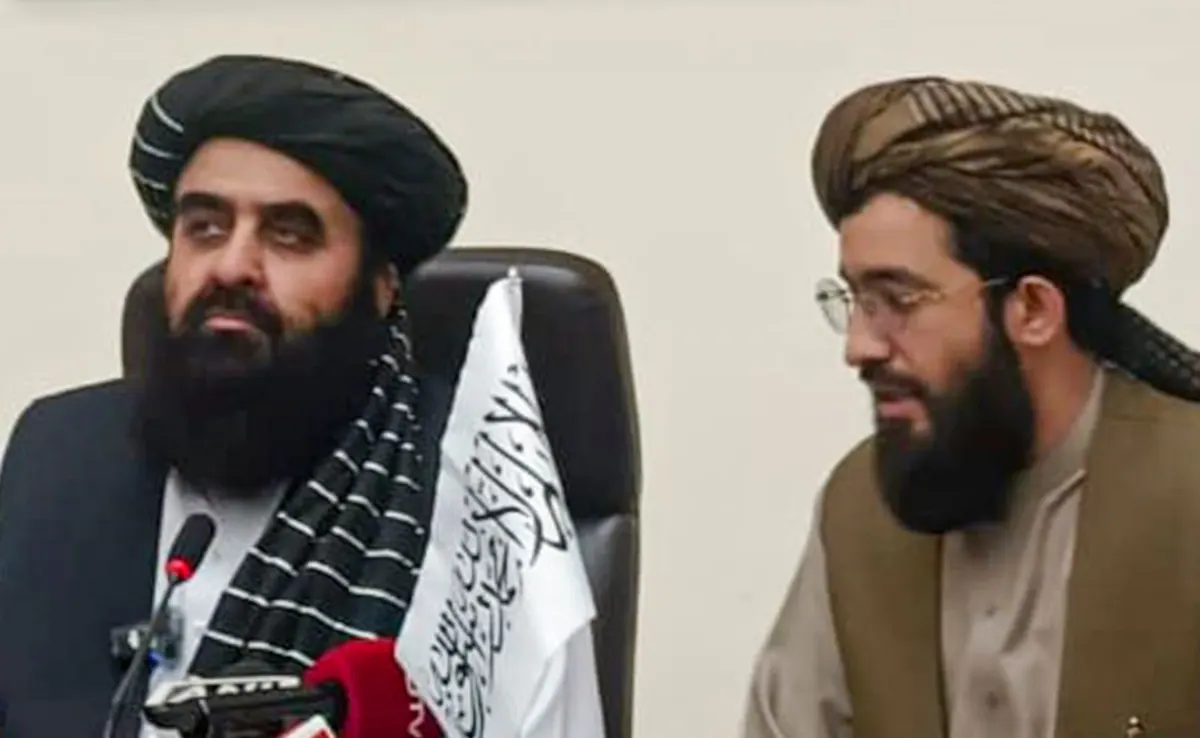New Delhi — A press conference by Afghanistan’s Foreign Minister Amir Khan Muttaqi in New Delhi has ignited a political and media firestorm after female journalists were barred from attending, highlighting the Taliban regime’s entrenched gender restrictions and sparking sharp criticism from Indian opposition leaders.
The Ministry of External Affairs (MEA) distanced India from the incident, clarifying that the press meet was organized by Afghanistan’s Consul General in Mumbai and held within the premises of the Afghan Embassy, which falls outside India’s jurisdiction. It stressed that India had “no role to play” in deciding the invite list, which excluded women.
The press conference, held on Friday at the Afghan Embassy, was attended exclusively by male journalists. Several female reporters, despite adhering to the dress code, were allegedly stopped from entering. The exclusion drew widespread condemnation from journalists and civil society, many of whom took to social media to express anger over the blatant discrimination.
The Taliban government is known for its severe restrictions on women’s rights—banning them from most jobs, excluding them from public life, and even prohibiting books authored by women in universities. Recently, 18 academic courses—including Gender and Development, Women’s Sociology, and Human Rights—were dropped from Afghan university curricula.
Indian opposition leaders seized on the incident to criticize the Modi government. Rahul Gandhi accused the Prime Minister of failing to defend women’s rights, saying, “When you allow the exclusion of women journalists from a public forum, you are telling every woman in India that you are too weak to stand up for them.”
Priyanka Gandhi Vadra demanded that Modi “clarify” his stance, calling the incident an “insult to some of India’s most competent women.” P. Chidambaram expressed shock and said male journalists should have boycotted the event in solidarity with their excluded female colleagues.
Muttaqi’s visit marks a significant diplomatic moment. He arrived in India on Thursday and met External Affairs Minister S. Jaishankar on Friday. India announced that its technical mission in Kabul would be upgraded to a full embassy, signaling a potential reset in ties with the Taliban regime. Jaishankar reiterated India’s commitment to Afghanistan’s sovereignty and pledged support for its development through new projects.
The exclusion of women at a diplomatic event on Indian soil, however, has overshadowed the diplomatic outreach, raising uncomfortable questions about how India engages with regimes that openly violate fundamental rights.

